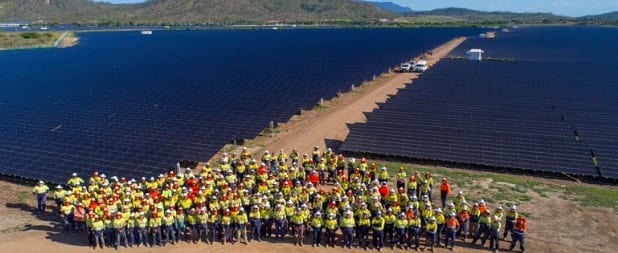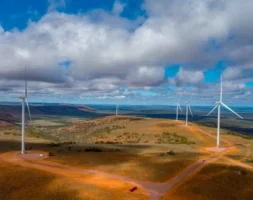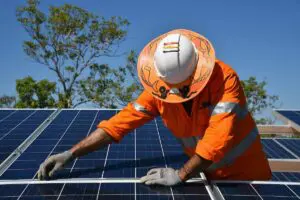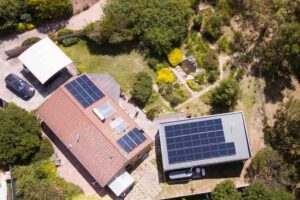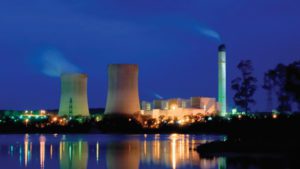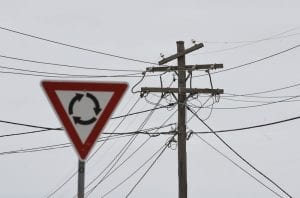The Queensland zinc refiner Sun Metals has announced it will go 100 per cent renewables, and will add further capacity to pursue “green hydrogen” opportunities in transport and export in what is being regarded as one of the most significant developments in Australia’s energy transition.
The decision by the South Korean owned Sun Metals refinery – the second biggest single energy user in Queensland, and one of the biggest in Australia – to reach 100 per cent renewables by 2040 has been described as a “tipping point” by Jon Dee, the Australian head of the RE100 initiative.
“This commitment by Sun Metals to go 100% renewable by 2040 is a real game changer,” Dee said in a statement. “If Sun Metals can go fully renewable by 2040, there’s no reason why every other Australian refinery and smelter can’t do the same.”
It is the second major Australian corporate entity to commit to the RE100 campaign in the past week, with retailer Woolworths announcing a 2025 target, and it takes means consumers of five terawatt hours a year of electricity have committed to source all of their needs from renewables, or about 2.5 per cent of the demand on the main grid. Sun Metals consumes around 1.1TWh a year for its refining processes.
“It should come as no surprise that so many companies are doing this,” Dee said. “As the corporate members of RE100 have already shown, going 100% renewable makes sense for the bottom line and it makes sense for the environment too.”
Sun Metals, wholly owned by Korean Zinc Corp, is already sourcing around 22 per cent of its electricity needs from solar, courtesy of the ground-breaking 125MW Sun Metals solar farm it installed near its refinery south of Townsville two years ago.
That was the first solar farm to be co-located next to a major energy user in Australia, even though it has suffered issues from unspecified technical problems and grid constraints. However, its output is expected to increase as those issues are addressed.
It now aims to reach 80 per cent renewables by 2030, through the addition of wind energy – although it is not clear whether this will be through the purchase of wind farms themselves, or a contract for their output.
It will then seek other technologies such as batteries, biogas and hydrogen to fill the remaining gap, and also plans to invest in green (renewable) hydrogen to replace diesel on the site and as an export fuel in the future. It recently secured a $5 million grant from the Queensland government to develop one of north Queensland’s first renewable hydrogen production facilities.
“We have already started our renewables journey,” Sun Metals CEO Kiwon Park said. “As the first major energy user in Australia to build its own large scale solar farm, we’re already getting 22% of our electricity from solar and based upon our development pipeline we will easily achieve 100% renewable by 2040.
“We would encourage all major smelters and refineries in Australia to consider joining RE100. The more we all move towards 100% renewable, the more we can save money and create a cleaner future for Australia’s industry and the environment.”
Such comments would have been considered impossible just a few years ago, and still are dismissed by technology skeptics. But as the NSW energy minister Matt Kean revealed in an interview with RenewEconomy’s Energy Insiders podcast last week, big smelters such as Tomago are also seriously looking at wind and solar because the cost of bulk energy is considerably cheaper, and storage is proving it can fill the gaps.
“Now that Sun Metals is going 100% renewable, we’re hoping that every smelter and refinery in Australia will follow suit and do the same,” Dee said.
Sun Metals has already had another major influence on the energy market, pushing through the case for the switch to 5-minute settlement periods that will finally come in to force next year, some five years after the refiner first proposed it.
Sun Metals was motivated by the rorting of the markets under the current 30-minute settlement period, and the shift to 5-minute settlements represents one of the biggest changes in energy market rules in a generation, and a major support of new battery storage technologies.
Former prime minister Malcolm Turnbull also weighed in, saying it was a clear sign that the current federal government’s emphasis on gas as a transition fuel was wrong.

